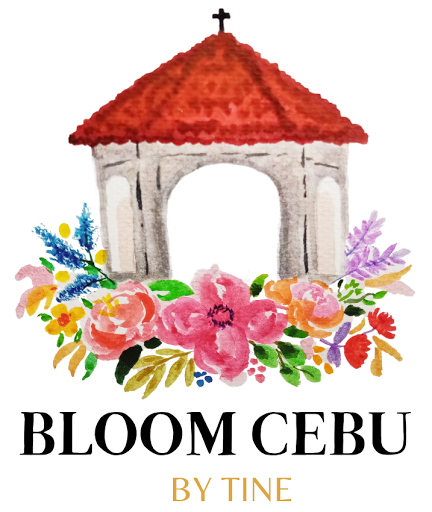One of the things that I Iove about running Bloom Cebu is the chance to connect with Cebuano personalities and tell their story through my humble blogs and features. Having to listen numerous stories of triumphs amidst tribulations from fellow Sugbuanons inspires me to further better my craft.
Among the Cebuano artists I’ve come to meet is stylographer, designer, and beauty queen maker Dexter Alazas whose works have been featured all over the media. Through Sir Dexter, I had the chance to roll some questions for Ms. Fiona Lideza. Apart from being a beauty title holder and a mother, Ms. Fiona is a successful female entrepreneur who continues to redefine the modern definition of a female boss.
Despite spending much of her time in between meetings and doing office work, right off the bat, you'll know Fiona is a beauty queen. Her glowing sun-kissed skin, Olympian physique, and brilliant smile show it. However, she is more than her boss persona. She is also a champion of what it means to give back to the community, and a proud Localite – wearer of locally-made products. I am pleased to have the chance to write about Fiona and share it with Cebu.
1. You won Ms. Tourism City of Talisay on 2016, what were your takeaways from the pageant that you are now able to apply in your role as a CEO?
After winning Miss Tourism City of Talisay, I was in the spotlight for some time. This gave me a sense of what it's like to be a role model. People see you and look up to you-- this means that your every action is scrutinized. This experience allowed me to have a tougher shell. Not everyone will love you, and not everyone will appreciate what you do. But what matters is what's in your heart and knowing that every step that you take is taken to achieve something positive.
2. What do you love about being a business woman and a beauty queen?
There are definitely advantages to being a businesswoman and former beauty queen. Both worlds are completely different, but in a way, share the same platform of woman empowerment. As an executive and a former beauty queen, I have a good avenue to achieve positive things, leave a mark, and inspire people through my words and actions.
3. Do you worry that as a strong CEO you'll intimidate men especially those who are also in the business industry?
I don't ever worry about men being intimidated by me as a female executive. I think the world has evolved enough to have a more diverse workforce on an executive or C-suite level. I've met so many wonderful women executives in my time, and I think the notion of a division between genders in business is not as prevalent as it was back in the day. I see that men, in fact, appreciate it when they see a young, strong, female business executive. It's refreshing for them to have a different level of conversation with somebody who can give an entirely different perspective about strategies in business.
4. Have you ever been judged or discriminated against as a female boss?
I don't feel that I've ever been discriminated against as a 'female boss'. But I do know that I have been judged for my age and the way I 'look.' As a former beauty queen and a fashion enthusiast, I am definitely not cut from the same cloth as your stereotypical 'Business Executive.' My sense of style is definitely more playful and I don't conform to the traditional expectations of a female boss. I also became an executive at the age of 24, and am surrounded by other executives who are about twice my age. Because of this, I see that people tend to presume that I don't have the best skills or ideas because I lack tenure. Ultimately, I was able to prove myself in no time with my leadership, strategic thinking, and innovation.
5. What are the biggest opportunities you saw during the crisis?
As the old adage goes, 'Necessity is the mother of invention.' I would say that the pandemic definitely PUSHED the entire world to reevaluate how they do things. Innovation and adaptation both took over and this gave my industry a plethora of new business opportunities. Businesses around the world are now more open to outsourcing, as the world shifted to a work from home model. We took advantage of this by adapting faster to these changes.
6. What are your tips for growing a company especially for the younger generation who would love to venture into the world of business?
The best tip that I can tell someone who would like to venture into business is to focus on your strengths. Don't think that you are the best with everything. Surround yourself with the right people who can fill in your weaknesses. The failure of some entrepreneurs is they don't trust other people to execute better than them in certain areas of their business. This will definitely hamper growth. Focus on what you do best, and let other people take care of the rest.
7. How do you handle work- life balance?
It is certainly a lot harder to handle work-life balance now that we are all working from home. But it is very important to set boundaries on when and where you work around the house. I personally split my time into three aspects-- 8 hours of work, 8 hours of personal time, and 8 hours of sleep. I don't live to 'work', I 'work' to live. I make sure that I don't overdo it. I also believe that having a holistic approach in life enables us to produce the best quality output, whether in life or in business. After all, it's not about the number of hours that you put in at work, but the 'quality' of work that you put in.
8. What are some of the challenges you face regarding catalyzing good change, mass employment?
Some of the challenges of employing hundreds of people is that no matter how positive your goals are, you would never be able to please every single person in your company. People have different virtues and values, and with that comes the challenge of finding a commonality with people to executive effective leadership. I am intrinsically a people pleaser, and knowing that someone is not satisfied or happy with what we bring to the table for them would really affect me. What I learned overtime is that as a leader, you just have to look out for the common good, and make sure that you are in the service of creating a mutually beneficial, mutually fulfilling relationship with your employees and clients.
9. What leadership traits and characteristics or indeed strengths and weaknesses do you feel are required or hinder you in your pursuit of excellence in your field of expertise?
As a leader, you are expected to rise above anything and be persistent no matter what. But I think in any industry, one of the traits that should be given more emphasis in business leadership is HUMILITY. People on top tend to lose sight of humility as they achieve greatness. This is of course because they know they are good at what they do and that gives them the success they've achieved. But if you want your success to transcend more than your lifetime and create a life-long impression on people that surround you, you need to have the humility to accept when you lose, the humility to acknowledge that some people may be better at you in other things, and the humility to take accountability for your faults. These are traits that I think are rare these days but are important when you strive for greatness.
10. How will you describe an empowered woman?
An empowered woman is someone who pushes outside the norms and expectations of society. It is someone who actively seeks to redefine and change the expectations towards women. Any person can be great in any field, achieve titles and merits. But for me, the true definition of someone empowered, regardless of gender, is when they are not afraid to push the boundaries of what people already know, and present a new perspective on things. That is the essence of an empowered man/woman.
11. What legacy would you like to leave for the people of Talisay, especially younger children?
My legacy as a modern, empowered woman, is to fight inter-race 'colorism'. All around the world we talk about 'racism', but we rarely talk about colorism. Colorism is something that exists in almost every culture around the world. Basically, it is when people are discriminated against, or are given lesser opportunities in their own country and culture because of the color of their skin. I grow up in the Philippines, where people are obsessed with skin whitening and people with fairer skin are generally treated better and looked up to. This is something that I want to redefine, and my advocacy revolves around empowering every single person to embrace their skin color for what it naturally is. Brown is beautiful. Black is beautiful. White is beautiful. If everything is white around the world, nothing is unique anymore. Uniquesness and variance is what makes life beautiful. Thus, I want to be known as the woman who fought against 'colorism' by embracing what would have been defined as a flaw, and turning it into a weapon.
12. What future would you like to see for Filipinas?
I want to see the future Filipinas to have a broader mark in the world. Filipinas are not just 'beauty queens.' Filipinas can be scientists; they can be engineers, politicians, or something more than the present expectations of society. I want to see a Philippines that not only celebrates beautiful women, but also values strong, smart, and talented modern Filipinas.
Pondering upon the responses of Ms. Fiona makes me feel both empowered and inspired. As a female, it made me think of my own strengths and use them to navigate myself to where I would like to be.
Our nation has its fair share of stories propelled by Filipinas who chose to lead and uplift others as they made their own names. There’s no doubt that our country, the Philippines, is known for its beauty queens, but more than the beautiful faces that could launch a thousand ships, we are blessed with strong, value-driven Filipinas ready to take on the ever-changing global landscape. With someone like Fiona, there’s no way the future wouldn’t be ours to take.











0 Comments
Post a Comment